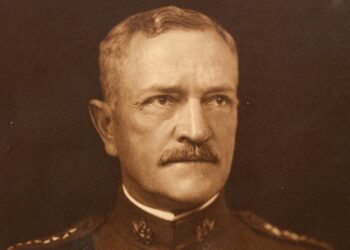Human civilization has evolved over millennia, and with it, various professions have emerged to meet the needs of growing societies. Many of these professions have deep historical roots, stretching back to ancient times. The occupations that can truly claim to be the most ancient are those that originated with our earliest ancestors and played a vital role in the survival and development of the human species. Long before the first cities and civilizations arose, our prehistoric forebears were engaging in productive work to obtain food, create shelter, make tools, and express the first stirrings of human culture.
Here are the top 20 oldest professions in the world.
1. Hunter-Gatherer
Origins: Prehistoric era
The hunter-gatherer lifestyle predates the development of agriculture and is the earliest form of human society. Hunter-gatherers foraged for edible plants, hunted animals, and fished. This nomadic way of life required extensive knowledge of the natural environment, animal behavior, and plant identification. Their survival skills were passed down through generations, ensuring the community’s sustenance and continuity.
2. Farmer
Origins: Neolithic revolution (around 10,000 BCE)
The transition to farming marked a pivotal shift from nomadic lifestyles to settled agricultural communities. Early farmers cultivated crops such as wheat, barley, and legumes and domesticated animals like cattle, sheep, and goats. This shift led to surplus food production, which supported population growth, the development of cities, and complex societal structures. Farming also led to innovations in irrigation, plowing, and crop rotation.
3. Healer
Origins: Prehistoric times
Early healers and shamans used herbs, rituals, and natural remedies to treat illnesses and injuries. They relied on extensive knowledge of medicinal plants and their properties, often passed down through oral traditions. Healing practices varied widely across cultures, incorporating elements of spirituality and magic. Early healers laid the groundwork for modern medicine, with some practices and remedies still in use today.
4. Musician
Origins: Prehistoric times
Music has been a part of human culture since ancient times, used in rituals, storytelling, and entertainment. Early musicians played instruments made from natural materials, such as bone flutes, drums, and stringed instruments. Music was integral to religious ceremonies, social gatherings, and cultural expression. It helped to strengthen community bonds and transmit cultural heritage.
5. Fisherman
Origins: Prehistoric times
Fishing is one of the oldest professions, with evidence of fishing activities dating back to 40,000 years ago. Early humans used simple tools like spears, nets, and hooks to catch fish and other aquatic creatures. Fishing provided a reliable food source and contributed to the development of coastal and riverine communities. Techniques evolved over time, leading to the use of boats, traps, and more sophisticated fishing gear.
6. Shepherd
Origins: Neolithic period (around 9,000 BCE)
The domestication of sheep and goats marked the beginning of pastoralism. Shepherds managed flocks, guiding them to grazing areas and protecting them from predators. They played a crucial role in providing meat, milk, wool, and hides, which were essential for early human communities. Shepherding also contributed to the development of social hierarchies and trade networks.
7. Weaver
Origins: Neolithic period (around 7,000 BCE)
Weaving cloth from plant fibers and animal wool was essential for creating clothing, blankets, and other textiles. Early weavers used simple looms and techniques to produce fabric. Weaving not only provided essential items for daily life but also played a role in trade and cultural expression. Patterns and designs often held symbolic meanings and reflected the identity of the community.
8. Potter
Origins: Neolithic period (around 6,000 BCE)
Pottery was crucial for storing, cooking, and transporting food and water. Early potters shaped clay into vessels by hand and later using the potter’s wheel, which was invented around 3,500 BCE in Mesopotamia. Pottery artifacts provide valuable insights into ancient cultures, including their daily life, trade practices, and artistic expression. Glazing and firing techniques improved over time, leading to more durable and decorative ceramics.
9. Builder
Origins: Ancient civilizations (around 5,000 BCE)
Builders and architects were responsible for constructing shelters, public buildings, temples, and monuments. Early builders used materials like mud bricks, stone, and wood. The profession evolved significantly with the rise of cities and monumental architecture, such as the ziggurats of Mesopotamia and the pyramids of Egypt. These structures required advanced knowledge of engineering, mathematics, and labor organization.
10. Carpenter
Origins: Ancient civilizations (around 4,000 BCE)
Carpenters crafted wooden structures, furniture, tools, and boats. Woodworking required skill in selecting appropriate timber, shaping it, and joining pieces together. Early carpenters were vital for building homes, public buildings, and ships, which facilitated trade and exploration. The profession also included artistic elements, as carpenters often created decorative and functional items.
11. Miner
Origins: Ancient civilizations (around 4,000 BCE)
Mining for metals, gemstones, and other resources was vital for tool-making, trade, and technological advancement. Early miners extracted materials like copper, gold, and lapis lazuli using simple tools. Mining techniques and safety measures improved over time, allowing for deeper and more extensive extraction. Ancient mines have been discovered in regions like Egypt, Greece, and the Americas, providing evidence of early mining activities.
12. Craftsman
Origins: Ancient civilizations (around 4,000 BCE)
Craftsmen specialized in creating various goods, from pottery to jewelry. Their work reflected cultural values and artistic expression. Craftsmen often belonged to guilds or workshops, where skills were passed down through apprenticeships. Their products were traded locally and internationally, contributing to economic prosperity and cultural exchange.
13. Blacksmith
Origins: Bronze age (around 3,300 BCE)
Blacksmiths were essential in developing tools, weapons, and various metal goods. The profession gained importance with the advent of the Bronze Age, when humans learned to alloy copper with tin to create bronze. This revolutionized agriculture, warfare, and craftsmanship. With the onset of the Iron Age (around 1,200 BCE), blacksmiths further advanced their techniques, producing stronger and more versatile tools and weapons.
14. Scribe
Origins: Ancient Mesopotamia (around 3,200 BCE)
Scribes were among the earliest literate individuals, responsible for recording and maintaining written records. They used cuneiform in Mesopotamia and hieroglyphics in Egypt to document administrative, legal, and commercial transactions. Scribes were essential for the functioning of early states, preserving historical events, literature, and religious texts. Their training was rigorous, and they often held high social status.
15. Merchant
Origins: Ancient civilizations (around 3,000 BCE)
Merchants facilitated trade between different regions, exchanging goods, cultures, and ideas. Early trade routes, such as those in Mesopotamia and the Silk Road, connected distant civilizations and promoted economic and cultural exchanges. Merchants traded a wide variety of goods, including spices, textiles, metals, and precious stones. They played a crucial role in the spread of technologies, languages, and religions.
16. Priest
Origins: Ancient civilizations (around 3,000 BCE)
Priests and religious leaders conducted rituals, offered spiritual guidance, and maintained religious traditions. They played a central role in interpreting the will of the gods and conducting ceremonies to ensure the community’s well-being. Temples were often the centers of economic and political power, and priests were influential figures within society. They were involved in education, law, and governance.
17. Soldier
Origins: Ancient civilizations (around 3,000 BCE)
Soldiers and warriors have been crucial in defending territories and expanding empires. Organized military forces emerged with the rise of complex societies, leading to the development of tactics, training, and weaponry. Soldiers played a key role in shaping the political and social landscapes of their time, with many ancient civilizations building their power through military conquest and defense.
18. Baker
Origins: Ancient Egypt (around 2,500 BCE)
Baking bread became a staple of daily life in ancient civilizations. Bakers developed techniques for fermenting and cooking grains, producing a variety of bread types. Bread was often used as a form of currency and offering to the gods. In ancient Egypt, large-scale bakeries supplied temples and workers, such as those building the pyramids. Baking also evolved with the introduction of new ingredients and technologies.
19. Barber
Origins: Ancient Egypt (around 2,000 BCE)
Barbers provided grooming services, including haircuts and shaves. In ancient times, they often served as informal medical practitioners, performing minor surgeries, bloodletting, and dental work. Barbers were important members of their communities, offering both practical and social services. Their tools and techniques have evolved, but the fundamental aspects of the profession remain.
20. Teacher
Origins: Ancient civilizations (around 2,000 BCE)
Teachers have been essential for passing down knowledge and skills to future generations. Early education systems were established in places like Mesopotamia, Egypt, and Greece, where teachers instructed students in subjects like writing, mathematics, and philosophy. Education was often linked to religious and administrative institutions, with teachers holding significant social status.
Conclusion
From the distant evolutionary past to the present day, these ancient professions laid the foundation for modern society, each contributing to the development of human civilization, further laying the foundations for the incredible diversity and complexity of human cultures and societies. While the tools and techniques may have evolved, the core functions of these professions remain relevant today. These professions not only highlight human resourcefulness but also demonstrate the importance of community, trade, and knowledge in the progress of civilization.


































































































































































































